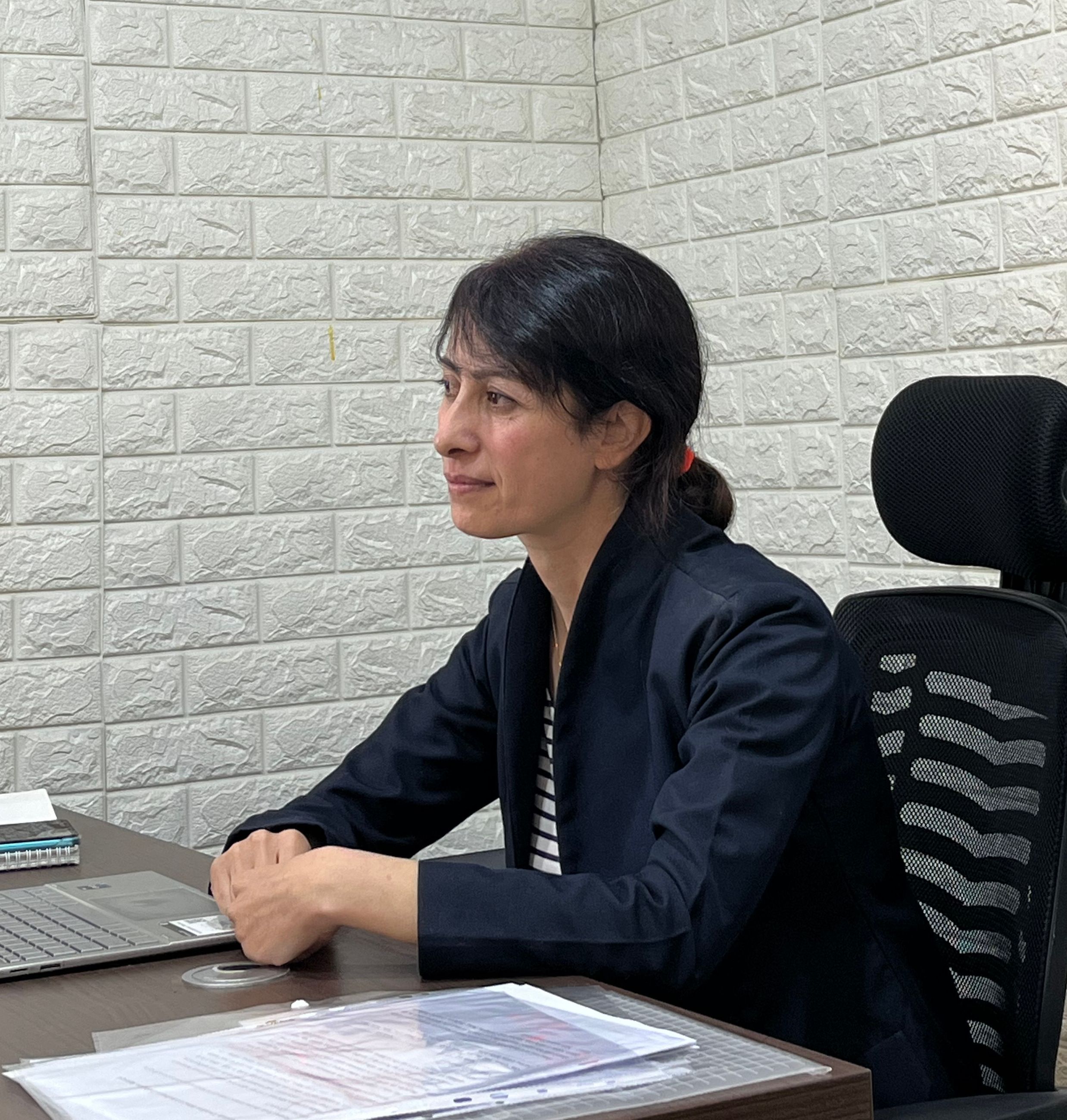
On the 8th of April 2025 we interviewed Dr Massoume Amini in her office on the University of Rojava’s main campus in Qamishlo. This text is based on her answers. I’m doctor Massoume Amini, vice president of the Post-Graduate and Research Center at the University of Rojava. Our center works in cooperation with three other centers within the university to facilitate the process of providing qualified academics for our faculties and to create a suitable environment for research. Our aims in this center are to provide a suitable ground for students and teachers to continue their studies at the post-graduate levels. We also want to develop more active research fields within the university that address the needs of the Rojava society, because we have to solve a lot of problems here by ourselves. And so, we want to establish some departments based on the requirements of Rojavas society, particularly in the areas of technology, ecology, and sociology. Another aim of this center is to organize academic conferences and symposiums in collaboration with universities abroad, in order to promote our university, exchange knowledge, and increase our academic level. The Post-Graduate and Research Center has three main parts. One part of the center focuses on the post-graduate studies and includes two institutes: the Institute of Social Sciences and the Institute of Modern Science and Technology. The Institute of Social Sciences has four departments: Archaeology, Ancient Languages, Education, and Sociology. And the Institute of Modern Science and Technology has nine departments. Both of the institutes were established in 2020. Currently, we have in total 83 master students. 18 students graduated recently, and a lot of them are working at the University of Rojava, the University of Kobane, and also in other organizations in Rojava. The academic system in both institutes is based not only on final exams, but for every subject the students have to pass different assignments, such as presentations or research projects. The second part of this center focuses on research. Currently, we have two ongoing research projects, and one of these projects is a collaborative project with a European university focused on medicinal plants, especially in Rojava. Previously, we also had another cooperative project that examined the contamination of the Euphrates River, using machine learning. This project was made in cooperation with a Swiss university. The third part of this center focuses on the university's press. In this part we have three different fields of work. One of these is the Journal of the University of Rojava. At first, we wanted to publish the journal twice a year, with one volume dedicated to social sciences and another to science and technology. Unfortunately, the journal of social sciences is not yet active, mainly because all of the academics in the institute are from abroad and we don’t yet have any full time academics in these fields in Rojava. However, we published the first volume of the science and modern technology journal. Another line of work is book publishing and translation. At the University of Rojava, the main teaching language is Kurdish (Kurmanji) and there are no scientific books and references available in Kurdish. We have to translate books from English or Arabic. In this field we have some difficulties, because a lot of the time nobody, no author or publisher, answers our emails, and copyright issues prevent us from translating many books. This is one of the major problems in our center. And also, for publishing the books, until now Rojava does not have international recognition, which means we do not have the ISBN numbers for our books. We publish our books in any case, but we are not able to participate in any national or international book fairs. This is another big problem for us, because we cannot promote the work of our university. We work a lot at the University, and we have great projects, but we struggle to present ourselves to the outside world. Maybe a lot of people from the outside think that there is just war here, and nobody can do anything, but actually people in Rojava have a specific character. They are working in any situation, no matter what, which is really remarkable. I see these people, they are working, and they want to work. A lot of students in our institutes, especially in the Institute of Modern Science and Technology, are working with very little equipment, and minimal resources, but they want to work. A lot of students are working until 12 at night, and they want to work as researchers. And because of that we are hopeful. There are a lot of limitations in the fields of research and education, there is the unstable situation, but we are hopeful, and we continue in our efforts.